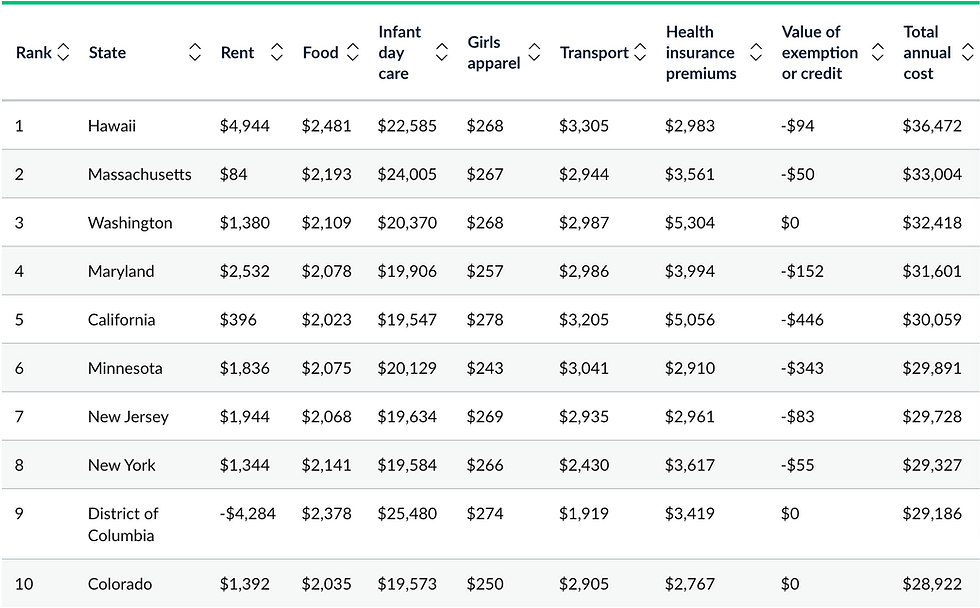7 Financial Considerations for Having Children
- Brian Page

- Aug 4, 2025
- 3 min read
On average, raising a child over 18 years costs an additional $297,674 (not including college costs)

Bringing a child into the world is a profound decision with emotional, physical, and significant financial implications. In 2025, the cost of raising a child has soared to unprecedented levels, making financial preparedness more crucial than ever.
What follows are seven key financial considerations prospective parents should evaluate before expanding their family.
1. The Rising Cost of Child-Rearing
According to a recent study by LendingTree, the average cost of raising a child from birth to age 18 in the U.S. is approximately $297,674, a 25.3% increase from previous estimates. This translates to an annual expense of about $29,419 per child, excluding tax exemptions or credits.
In certain states, the costs are even higher. For instance, families in Hawaii can expect to spend around $362,891 over 18 years, while those in Maryland may incur expenses up to $310,040.
2. Childcare Expenses Rival Housing Costs
Childcare has become one of the most significant expenses for families. In many U.S. cities, full-time center-based infant care costs surpass monthly rent payments. For example, in Springfield, Massachusetts, monthly infant care averages $1,819, which is 32.3% higher than the average monthly rent of $1,375.
Nationally, families who pay for childcare spend an average of 18.6% of their income on it, significantly exceeding the federal recommendation of 7%.
3. Impact on Career and Income
Deciding to have children often influences career trajectories, especially for women. Harvard economist and Nobel Prize winner (Economics) Claudia Goldin highlights the concept of "greedy work," where certain professions demand long, inflexible hours, making it challenging for parents, particularly mothers, to balance work and family life.
Dr. Goldin found that the imbalance is the primary cause of the gender pay gap, reducing earnings and slower career progression for one parent, typically the mother, affecting the family's financial stability.
4. Healthcare and Insurance Costs
Healthcare expenses for children include routine check-ups, vaccinations, emergency visits, and specialized care. Additionally, family health insurance premiums have increased 10% since 2016.
It's essential to account for these recurring costs and ensure adequate health insurance coverage to mitigate unexpected medical expenses.
5. Long-Term Financial Planning
Beyond immediate expenses, parents should consider long-term financial goals, such as saving for a college education, contributing to retirement funds, and maintaining an emergency savings account. Balancing these objectives requires meticulous budgeting and financial discipline.
Click here to calculate the projected future costs of college.
6. Geographical Variations in Costs
The cost of raising a child varies significantly across different regions. For instance, while Hawaii tops the list with the highest expenses, states like Mississippi and the District of Columbia have lower average costs, at $190,402 and $194,108, respectively, over 18 years.
Understanding these regional differences can influence where to live and raise a family.
7. Utilizing Financial Planning Tools
Effective financial planning is crucial for prospective parents. Modern Husbands offers a comprehensive Family Financial Planning Calculator designed to help dual-career couples assess the financial implications of having their first child. This free tool evaluates short-term and long-term financial scenarios, including potential career breaks, childcare costs, and parental leave opportunities.
Take Action: Plan Your Financial Future
Embarking on the journey of parenthood requires careful financial preparation. We support couples facing transition points like this in their lives.
Click here to learn more about our services.




